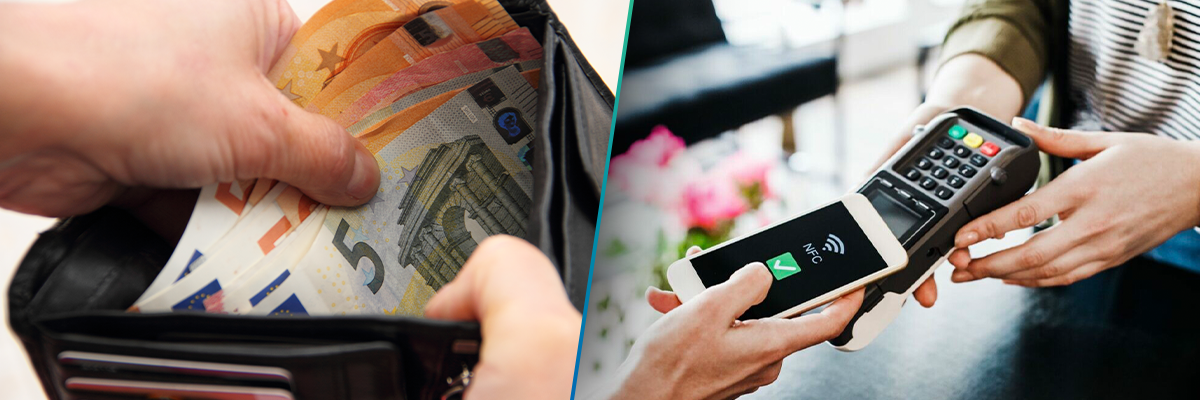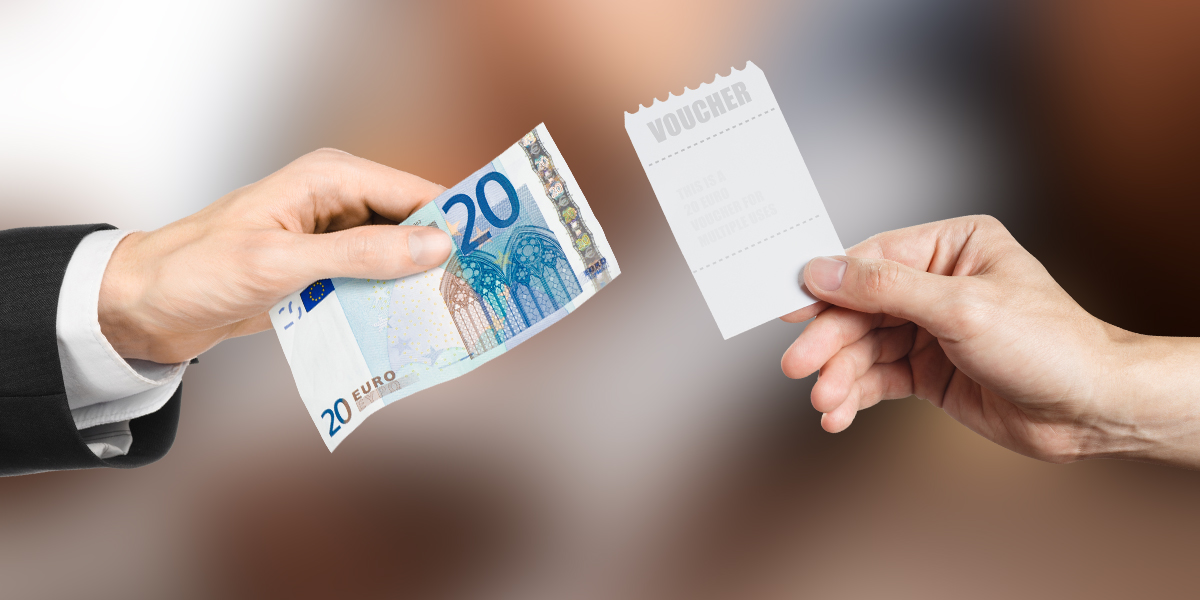As payment methods continue to evolve, it’s good to get a handle on cash vs digital payments. This article will look at the advantages and challenges of each method, what’s shaping the payment industry now, and what might come next. By exploring these points, you’ll get a better idea of how cash and digital payments affect your everyday life.
Current Trends In Cash Vs Digital Payments
The world of cash vs digital payments is changing quickly, driven by advancement in technology and changing consumer preferences. As contactless payments and mobile wallets gain traction, convenience and speed are becoming paramount. Key technologies like NFC and QR codes make transactions seamless and easy. Additionally, biometric authentication methods are enhancing the security of digital transactions, providing users with peace of mind.
Artificial Intelligence (AI) plays a crucial role in this shift, as is improving fraud detection and customer support. By leveraging AI, digital payments are becoming increasingly secure and efficient, addressing many of the concerns that users may have about online transactions.
However, there is no definitive answer as to whether cash or digital payments are superior. The preference between the two often hinges on cultural norms, regional economic conditions, and individual habits and preferences. Each payment method has its own set of advantages and challenges, and the choice between cash and digital payments often reflects personal and contextual factors.
In summary, while digital payments continue to rise in popularity due to their convenience and technological advancements, cash remains a viable and relevant option for many, especially when it comes with a blend of physical and digital like cash-to-code solutions. Understanding the current trends and technological innovations can help you make informed decisions about your payment preferences.
A Brief Look At Cash: Benefits And Challenges
Cash remains a significant payment method, even in an era where digital payments are booming. Its simplicity and wide acceptance – universality – make it a reliable option in areas where digital options are not available or widely accepted or where technology infrastructure is lacking. The tangible and immediate nature of cash keeps it relevant in the debate of cash vs digital payments.
Advantages of Cash
- Anonymous Transactions
Cash allows you to make purchases privately without leaving a digital trail, keeping your transactions confidential. - No Additional Fees
When you use cash, you avoid extra service fees and processing charges that often come with digital payments, making it a cost-effective choice. - Universal Acceptance
Cash is accepted almost everywhere, so you don’t have to worry about whether your payment method will be accepted. - Immediate Availability
Cash transactions are instant and don’t rely on technology, which is great for immediate needs.
Challenges of Cash
- Security Risks
Cash can be lost or stolen, and recovering it is difficult compared to digital payments. - Handling and Storage
Managing and securing large amounts of cash can be cumbersome and expensive. - Lack of Digital Records
Cash transactions don’t leave a digital record, which can make tracking and verifying your spending more challenging.
A Brief Look At Digital Payments: Benefits And Challenges
Digital payments have changed the way we handle transactions, offering a modern alternative to traditional cash. With advancements in technology, digital systems like mobile wallets and online transfers have become essential for daily financial activities.
Advantages of Digital Payments
- Convenience
Digital payments make it easy to pay quickly from your device, without needing physical cash or trips to the bank. - Security
Digital payments use encryption and fraud detection to keep your transactions and personal information safe. - Fast Processing
Payments are confirmed and settled instantly, which is perfect for urgent transactions. - Easy Tracking
You can easily monitor your spending and access your transaction history with digital tools.
Challenges of Digital Payments
- Digital Divide
Not everyone has access to the technology, infrastructure or internet needed for digital payments. - Cybersecurity Risks
Digital payments can be vulnerable to hacking and phishing, which can put your data at risk if proper measures are not active. To safeguard against risks, it’s crucial to be in place strong security practices, such as secure payment platforms, enabling two-factor authentication, and staying vigilant against phishing scams. - Technology Dependence
Technical issues or network outages can disrupt digital payment systems. - Privacy Concerns
The collection and use of data in digital payments may raise concerns about how your personal information is handled.

Comparison And Analysis: Cash Vs Digital Payments
Speed and Convenience
Cash
Physical currency is great for fast, face-to-face transactions. You don’t need any electronic devices —just the cash on hand. It’s perfect for small purchases and in places without technological infrastructure. However, only specific cash-to-digital services enables the option for online transactions.
Digital Payments
Online transactions are quick and easy. You can pay instantly from your phone or PC, making them ideal for online transactions.. However, these transactions required an internet connection and a device, which might not always be available.
Security
Cash
Paper money can be lost or stolen, with little chance of recovery. Unlike digital payments, cash lacks advanced security features such as encryption and fraud protection.
Digital Payments
On the other hand, online payments use encryption and fraud protection measures to keep your money and personal information safe. Despite these security features, digital transactions are still vulnerable to hacking or phishing, so it’s important to use them carefully.
Accessibility
Cash
Cash is accepted almost everywhere, so you don’t have to worry about whether your payment method will be accepted. But, handling and storing large amounts of cash can be inconvenient and pose safety risks.
Digital Payments
Digital transactions offer the advantage of easily tracking and managing your spending. However, they require access to technology and reliable internet, which can be a barrier in some regions or situations.
Economic Impact
Cash
Cash is essential in areas where banking services or digital payment systems are unavailable or limited. However, managing cash can be a hassle and may involve extra costs for storage and handling.
Digital Payments
Digital Payments streamline transactions and help users maintain better financial records. They also promote financial inclusion by providing access to the financial system for more people. However, they may exclude individuals who lack access to digital technology or the internet.
Future Predictions For Cash Vs Digital Payments
The way we pay for things is going to change a lot in the future. New technologies like blockchain could make transactions safer and cheaper. The Internet of Things (IoT) might introduce new ways to pay, like automatically paying when you buy groceries. Also, AI could make digital payments even more secure and easy to use. In the future, we might see fewer people using cash and more people using digital payments in their daily lives.
Emerging Solutions: OKTO.EXPRESS
As payment methods change, OKTO.EXPRESS is making things easier by bringing together the ease of cash with the benefits of digital payments. It’s a handy solution that helps you manage your money securely and conveniently. With OKTO.EXPRESS, you can keep up with the latest payment trends while still using cash.
Final Thoughts
The choice between cash and digital payments comes with its own pros and cons. Cash remain a strong choice for quick and straightforward transactions and is widely accepted. However, it is less secure than digital options and cannot be used for online purchases. On the other hand, digital payments offer enhanced convenience and security features. They allow for easy transactions, though they are reliant on technology and can be vulnerable at cyber threats if proper measures are not enabled. Understanding these differences between cash and digital payments can help you choose the best and most suitable payment method for your needs, considering both technological capabilities and security concerns. There is no correct answer to whether cash or digital payments are superior, as this is linked with your own preferences, depend on cultural norms, regional economic conditions, and personal habits. Both methods have unique advantages and challenges. While digital payments are growing in popularity due to their convenience and technology, cash remains a relevant choice, especially with hybrid solutions like cash-to-code. Understanding these trends and innovations can help you choose the best payment method for your needs.


